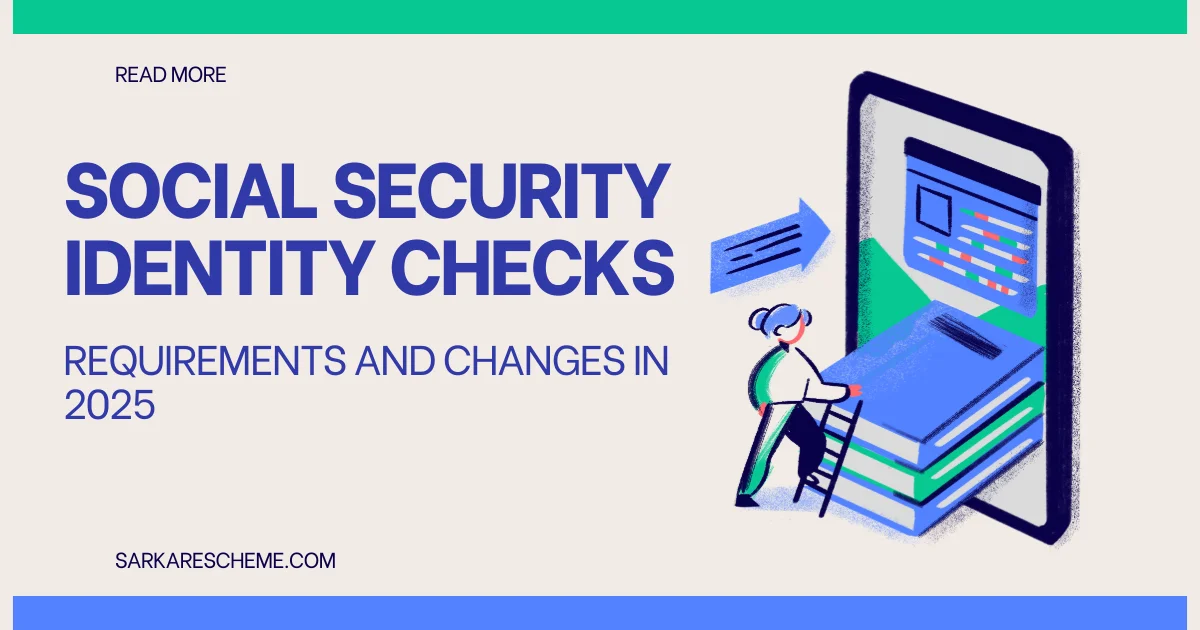The Ultimate Guide to Social Security Identity Checks: Why They Matter and How to Use Them Safely
Introduction
In a rapidly digitalizing world, identity fraud has become a growing concern for individuals and businesses alike. One of the most effective ways to combat this threat is through Social Security Identity Checks, a verification process that ensures a person’s Social Security Number (SSN) aligns with their true identity. Whether you're an employer trying to vet candidates, a financial institution protecting against fraud, or an individual looking to secure your personal information, understanding how Social Security Identity Checks work—and why they matter—is essential. This guide dives deep into the process, its benefits, and how it protects you and your business from costly errors and security breaches.
What Are Social Security Identity Checks?
Social Security Identity Checks refer to the process of verifying whether an individual’s SSN is valid and matches their legal name and date of birth. This identity verification is commonly performed by employers during hiring, financial institutions during account openings, and government agencies before disbursing benefits. The check ensures the SSN hasn’t been misused, stolen, or manipulated, acting as a critical line of defense against identity theft and fraud.
For instance, a business hiring a new employee can verify the candidate’s SSN to ensure they’re eligible to work in the U.S. Likewise, a bank may use this check to confirm the identity of a loan applicant before approving the transaction.
Why Are Social Security Identity Checks So Important Today?
According to the Federal Trade Commission (FTC), there were over 1.1 million reports of identity theft in the U.S. in 2024, with the misuse of SSNs being a major factor. These numbers illustrate just how vulnerable personal information has become in the digital age.
Here’s why Social Security Identity Checks are critical:
-
Fraud Prevention: Helps detect stolen or fabricated identities before damage is done.
- Regulatory Compliance: Assists organizations in following employment laws (e.g., E-Verify) and anti-money laundering regulations.
- Data Accuracy: Reduces administrative errors caused by mismatched or incorrect SSNs.
- Security Assurance: Offers peace of mind for both institutions and individuals by protecting sensitive data.
Case in point: A healthcare provider implemented automated identity checks after discovering patient records being altered due to stolen SSNs. Within months, identity mismatches dropped by 40%, improving both compliance and trust.
How Do Social Security Identity Checks Work?
The process is typically straightforward but powerful. Here's how it usually unfolds:
-
Information Collection: The individual’s SSN, name, and date of birth are collected.
-
Database Verification: The data is cross-checked against records held by the Social Security Administration (SSA) or through third-party identity verification services.
-
Match or Alert: The system either confirms a match or flags inconsistencies such as:
-
SSN issued to a deceased person
-
Multiple users linked to the same SSN
-
Invalid or unissued SSNs
-
These checks can be done in real-time using automated systems, helping organizations make fast, informed decisions.
Who Needs to Use Social Security Identity Checks?
The scope of usage is broad. Here are key sectors that benefit from SSN verification:
-
Employers: To verify a candidate’s eligibility and identity during hiring.
-
Banks & Lenders: For KYC (Know Your Customer) compliance and fraud protection.
-
Government Agencies: Before granting social benefits or issuing IDs.
-
Healthcare Providers: To ensure accurate patient identity and prevent medical identity theft.
-
Insurance Companies: For policy approvals and claim validations.
Each of these industries faces high risk if SSNs are misused, making verification a business-critical practice.
Common Challenges and How to Overcome Them
1. Data Breaches
Problem: Stolen SSNs from data leaks are often sold on the dark web. Solution: Use continuous monitoring and multi-layer verification processes.
2. Human Errors
Problem: Mistyped SSNs can result in false negatives. Solution: Automate the process to reduce manual input errors.
3. Cost and Time
Problem: Manual checks can be slow and expensive. Solution: Leverage modern digital identity verification platforms that offer fast, affordable checks.
How to Protect Your Social Security Number
While organizations are responsible for secure verification, individuals also play a role in safeguarding their SSNs. Here are some practical tips:
- Limit Disclosure: Only provide your SSN when absolutely necessary and to trusted parties.
-
Monitor Credit Reports: Regularly review reports from Experian, Equifax, and TransUnion.
-
Set Up Alerts: Use services like LifeLock or IdentityGuard for real-time SSN usage alerts.
-
Stay Informed: Understand how and where your SSN is used. Visit ssa.gov for resources.
Conclusion
In 2025 and beyond, Social Security Identity Checks are not just best practices—they are essential tools in the fight against identity theft and fraud. By understanding how these checks work, who uses them, and how they protect individuals and businesses, you can make informed decisions and stay ahead of potential threats. As more of our personal data moves online, the need for secure, accurate identity verification becomes even more critical. Whether you're a business owner, HR professional, or simply a cautious citizen, embracing Social Security Identity Checks can offer you the confidence and security you need in today’s digital economy.
FAQs on Social Security Identity Checks
Ques: Can individuals run Social Security Identity Checks on themselves?
Ans.been misused or compromised.
Ques: Do Social Security Identity Checks impact my credit score?
Ans. No, these checks are not credit pulls and do not affect your credit score.
Ques: Are Social Security Identity Checks mandatory for employers?
Ans.While not legally required in all cases, they are highly recommended and often mandated for federal contractors under the E-Verify program.
Ques: What should I do if my SSN is used fraudulently?
Ans. Contact the SSA and the FTC immediately. You may also want to place a fraud alert or freeze your credit with the major bureaus.
Ques: How often should these checks be done?
Ans. For businesses, checks should be conducted during onboarding and periodically reviewed. Individuals should monitor their SSN at least quarterly.


Comments
Post a Comment